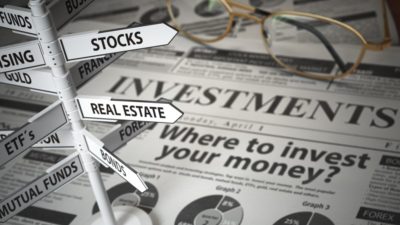Let’s be clear. There aren’t really any best stocks to own in a market crash, if we’re talking about a positive share price performance. Only stocks that fall less than others. Sure, there may be the odd winner, such as a small-cap biotech that just happens to make a major breakthrough when the rest of the market’s crashing, but most companies see their share prices fall.
Nevertheless, in building a portfolio, it’s worth knowing which stocks are likely to perform relatively well in a market meltdown. Owning such stocks, or a good number of them, can provide some comfort in weathering the storm.
The last bear market
Going back to last decade, and the great financial crisis and recession, the FTSE 100 fell 47.5% from peak to trough over a period of almost 18 months. However, the earnings of companies in some industries are less dependent on the state of the economy than others, and I’ve dug out some data on these key ‘defensive’ industries. The table below shows the share price performances of defensive stocks over the period of the last bear market.
| Industry | Company | Performance (%) |
| Consumer goods | British American Tobacco | -4.2 |
| Reckitt Benckiser | -13.8 | |
| Unilever | -21.3 | |
| Imperial Brands | -23.7 | |
| Diageo | -30.9 | |
| Pharmaceuticals | AstraZeneca | -16.8 |
| GlaxoSmithKline | -20.1 | |
| Utilities | National Grid | -26.9 |
| SSE | -28.7 | |
| Centrica | -35.9 | |
| United Utilities | -36.4 |
As you can see, the share prices of all these stocks fared well relative to the 47.5% slump of the Footsie. In fact, their average fall of 23.5% was less than half that of the index. There was some variation, even between direct peers — notably, British American Tobacco (-4.2%) and Imperial Brands (-23.7%) — but overall these defensive sectors performed as you’d expect in a bear market.
Looking ahead
How attractive are the current valuations of the above stocks? And should investors consider buying them today? Let me give you a few of my thoughts.
Utilities. I reckon stocks in this sector are problematic at the moment. This is because we have a General Election looming, and it’s Labour Party policy to nationalise utilities. If Labour won and a bear market followed, I’m not sure how resilient the share prices of utilities would be. I’d be inclined to wait for the outcome of the election before considering stocks in this sector.
Pharmaceuticals. After a period in the doldrums, due to patent expiries, the market has warmed to the improving prospects of big pharma firms. The share prices and valuations of AstraZeneca and GlaxoSmithKline — particularly the former — have risen significantly. AZN has a forward price-to-earnings (P/E) ratio of 27 and prospective dividend yield of 2.9%. GSK has a P/E of 15 and yield of 4.5%.
Personally, I’d avoid AZN right now, particularly as I’ve argued its core earnings are artificially inflated. But I see GSK as a ‘buy’.
Consumer goods. There’s currently a sharp divergence in the valuations of the two tobacco stocks and the other three consumer goods giants. British American Tobacco (P/E 8.4 and 7.7% yield) and Imperial Brands (P/E 6.1 and 12.2% yield) versus Reckitt Benckiser (P/E 17.5 and 2.9% yield), Unilever (P/E 20.9 and 3.1% yield) and Diageo (P/E 22.3 and 2.3% yield).
Personally, I think British American and Imperial have the wherewithal to adapt to the challenges facing traditional tobacco products, while Reckitt, Unilever and Diageo are reasonably priced. As such, I’d be happy to buy these five consumer goods stocks today.
Look out tomorrow for my article on the worst stocks to hold in a stock market crash!







